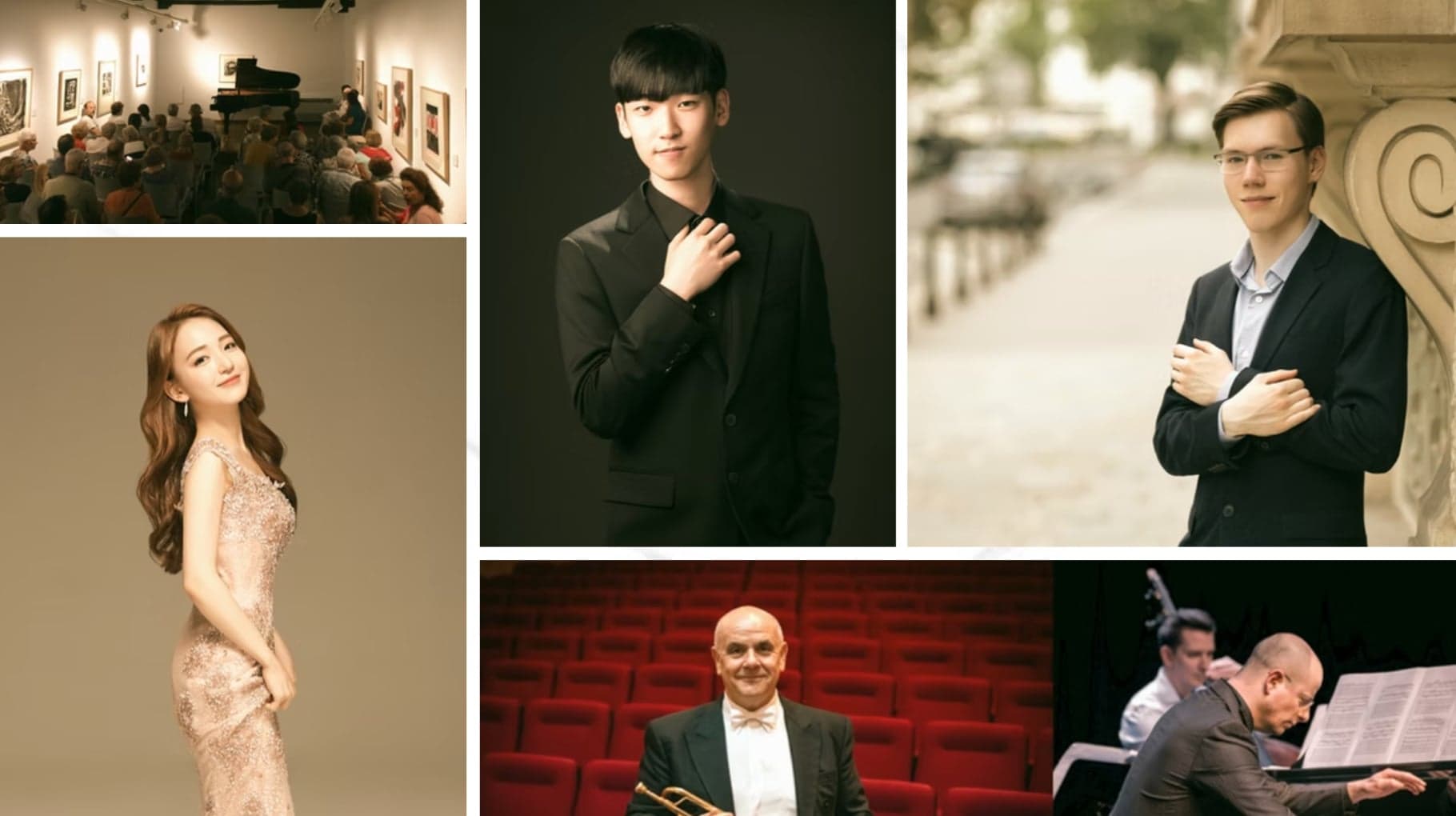The picture from recent years is clear: the winners’ list has been dominated by Asian musicians—mainly South Koreans, along with Japanese and Chinese—together with excellent Ukrainian and European performers. That’s a fact, not a value judgment. Classical music is a universal language and the merit of those who win is beyond question: they study rigorously, compete fairly, and play at a very high level.
Recognizing that is the least we can do.
Even so, the facts prompt a question: what does it say about our ecosystem—our conservatories, our local circuits, the connection between the festival and its community—that in a competition devoted to European repertoire, hardly any finalists come from our own backyard? The question isn’t about feeding clichés or building walls. It’s about finding solutions.
A symptom, not a conspiracy
It’s not surprising that Asian performers triumph in European repertoire: they’ve spent decades investing in music education, competitions, and international careers. What matters for Marbella isn’t “where the winners are from,” but why we aren’t managing to grow a talent pipeline here that can compete on equal terms. If Málaga prides itself on boquerones (anchovies), beaches, technology, and quality of life, why can’t it also boast a training pathway that takes our pianists to those finals?
Signs of disconnect
This year, several decisions—taken together—invite serious reflection:
One concert moves to Málaga “to attract more students,” which is sensible… but perhaps should have been done from the earliest editions if the goal was to weave a provincial network.
The masterclass is dropped, a key tool for Andalusian students to benefit from logistical proximity and get a real boost.
The Auditorio José Pernía Calderón (650 seats) is abandoned in favor of small, enclosed venues (≈100 seats), which are hard for families and children.
Practical doubts persist: late ticket information and tiny quotas at venues like Buchinger, the Ralli Museum, or the Museum of Engraving—topped off by the gala of the three virtuosos (this year’s winners), where you’ll end up queueing at the Museum of Engraving to see if there’s space to get in.
The financial burden falls on the Davidoff Music Association, which—on top of organizing the competition—serves on the jury, plays in the only paid concert, and contributes the second and third prizes. The first prize is paid by the City Council (€3,000). That’s exactly where one might ask whether some incentives should be reoriented toward residencies or European—and Andalusian—circuits that strengthen the local fabric.
None of this diminishes the organizer’s passion and effort: without that drive, Marbella wouldn’t have this competition today. But if these aren’t signs that a readjustment is needed, what would be?
Concrete (and measurable) proposals
We don’t need grand gestures; we need method:
Stable pedagogical program: restore and safeguard annual masterclasses, with travel grants for students from Andalusian conservatories.
Open sessions and a piano in the street: bring an accessible piano back to the promenade; run mini educational concerts for schools and families.
Capacity and communication: prioritize 400–650-seat venues at least for the final; publish the calendar and ticketing system 4–6 weeks in advance.
Repertoire with identity: require a short/medium piece by Málaga/Andalusian composers in the semifinal or final—so our heritage is heard, studied, and recorded.
“Joven Andalucía” Prize: exclusive access for students from Andalusian conservatories, with mentorship for a full academic year.
Alliances: University, Philharmonic, youth orchestras, foundations, municipal theaters, and private sponsors—let the festival be an ecosystem, not an island.
Our own references exist—let’s program them
If we ask for identity, we must name it. Málaga and its province have both history and a present robust enough to shape a strong curatorial narrative:
Composers: Eduardo Ocón y Rivas, Emilio Lehmberg Ruiz, José Cabas Galván, Jaime Gregorio Torrens, Rafael Mitjana y Gordón.
Pianists: Manuel Carra, Paula Coronas, José Carra.
This isn’t about “closing” the festival, but about opening the repertoire so that artists from around the world also measure themselves against our tradition. That’s universality rightly understood.
Respect for merit, ambition for the model
The fact that this year we’ll again hear two Koreans and a Ukrainian performing the European classics is, above all, good news for the audience: quality is in store. Let’s applaud talent, wherever it comes from. And at the same time, let’s demand a model that lifts our community: more pedagogy, more seats, more planning, more visibility, and more identity.
The competition was born thanks to a bold private initiative. It’s time for its second foundation: the civic one. If Marbella wants a festival that endures, it must make it its own without losing international rigor: open the doors, fill the big halls, care for students, and return music to the streets.
Because a competition isn’t just a podium: it’s the sum of how many people come in, how much they learn, and how many return. And on that front, as of today, we have room—and responsibility—to improve.
Let’s reward the best, yes. And at the same time, let’s build the path so the best can also grow here. Marbella can afford it; its people deserve it; so does music.
Useful appendix for the reader
History (selection)
2024: 1st Geunpyo Park (South Korea) — Audience Award; 2nd Roman Fediurko (Ukraine); 3rd Kwanwook Lee (South Korea).
2023: 1st Saya Ota (Japan) — Audience Award; 2nd Sung Eun Kim (South Korea); 3rd Jiwon Hwang (South Korea).
2022: 1st Minsung Lee (South Korea).
2018: 1st Giulio De Padova (Italy).
2017: 1st Ting Chia Hsu (Taiwan); 2nd Junhui Chen (China); 3rd Rie Kibayashi (Japan).
2016: 1st Yilan Zhao (China); 2nd Alexandra Gracheva (Russia); 3rd Dong-Wan Ha (South Korea).
2015: 1st Hee Jun Han (South Korea); 2nd Deren Wang (China); 3rd Ivana Govedarska (Bulgaria).
